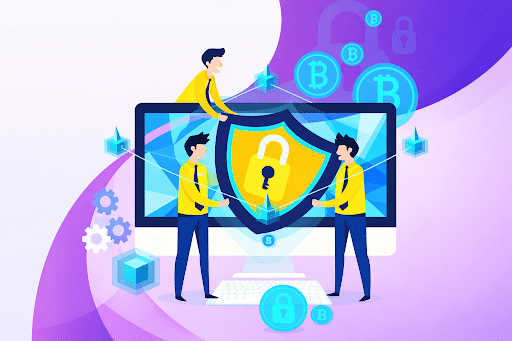
Embracing artificial intelligence is a given for some and a journey for others. Wherever you fall on that spectrum, it’s undeniable that AI technology is changing how industries and individuals experience the internet. Online privacy is no exception. Virtual Private Networks (VPNs) are also becoming more advanced as AI integrations become more widely available—great news for those in regions with strict internet control.
Online Privacy—Then vs. Now
Not long ago, online privacy conversations were usually about whether or not your Facebook photos should be set to “public” or “friends only.” Fast forward ten years, and things have very clearly changed. Today, online privacy is more about avoiding unwanted surveillance, managing how personal data gets collected on the web, and dealing with difficult-to-comprehend cybersecurity threats.
AI can be used to help mitigate these problems, but at the same time, it also exacerbates the problem. AI-powered tools are as widely available for nefarious purposes as they are for finding solutions to online privacy concerns. Artificial intelligence can be used to track your online behaviour, guess your next move, and even manipulate how and where you click.
Modern technology can be used by more than just cybercriminals to access your information. Internet service providers, governments, and even workplaces can use advanced tools to see your online activity at a granular level, in real time. Deep packet inspection (DPI), for example, is one of these tools.
How VPNs Work (and Where AI Fits In)
At its simplest, a VPN works by wrapping your internet traffic in a layer of encryption and routing it through a remote server. It’s a great way to make your digital activity more private.
Traditionally, VPNs have been used to protect data on public Wi-Fi or bypass geo-blocked content. As online threats become more adaptive and ISPs become more savvy to efforts to bypass restricted content, VPNs are adapting, too. How? With the help of AI.
What AI technology is being used to improve the effectiveness of VPN services? How does it work? What makes a VPN “AI-enhanced”? Here are a few examples:
- Real-time network analysis for threat mitigation. AI can detect threats like malware, phishing attempts, or network anomalies faster than any human.
- Automatic server optimization for performance and latency reduction. AI chooses the fastest, least congested server for your browsing session.
- AI-powered personalization of VPN routing and server choices. Streaming? Gaming? AI tailors your connection for optimal performance.
- Improved IoT security via network segmentation of your smart home devices. This strategy isolates vulnerabilities.
- Smart encryption management that detects policy issues and configures access controls without human oversight.
While traditional VPNs are effective, AI-enhanced versions are faster, smarter, and more adaptive. Protective technology must keep up as cyber threats evolve and become more elaborate. Looking forward to the future of VPN technology, there is likely to be an uptick in the use of decentralized VPN (dVPN) and quantum-resistant encryption standards. Additionally, whole-home VPN protection is expected to become more prevalent.
VPN Use in High-Censorship Regions
A firewall, technically speaking, is a security system that decides which internet traffic is allowed to leave your device or network based on preset rules. When used to restrict political or cultural content, it becomes a geopolitical firewall. Governments often use geopolitical firewalls to censor social media platforms, prevent access to sensitive topics, or limit user exposure to harmful or controversial topics.
VPN services have often been used to bypass these types of restrictions, but in some cases, the use of a VPN may also be detected and blocked. AI technology can help VPN users outsmart even the most comprehensive internet censorship and surveillance systems.
When it comes to overcoming geo-blocks, here are a few ways AI helps boost the effectiveness of a VPN:
- Camouflage traffic usingdynamic obfuscation protocols, which constantly change internet traffic patterns.
- Learning fromfirewall behaviour and using adaptive tunneling to re-route data accordingly.
- Switching servers mid-session—also known as server rotation—to avoid getting blacklisted.
Why does this matter? As regional governments adopt new technologies to restrict content, internet users in those regions need to find new ways to protect their privacy or access certain tools. It’s important to note that it’s not always legal to use a VPN in these regions, and if it is legal, there may be restrictions on which services are allowed.
China is one of the countries best known for implementing a strong geopolitical firewall. Foreigners wishing to travel will likely need to use a VPN in China to access platforms like Google, Instagram, and international news sites. However, illegal activity should still be avoided. Internet users should also consider their options carefully.
Artificial Intelligence vs. Artificial Intelligence
AI-powered technology has many possible applications. Just as organizations and individuals use AI to enhance online user experiences, cybercriminals, and governments can access the same tools to undermine security and privacy.
AI can be used to create automated systems that collect and analyze your data. These systems can then generate disturbingly detailed personal profiles. How detailed? Detailed enough that it can anticipate where you are likely to click next, or even push you toward certain activities without you realizing it. It sounds like Rehoboam, from “Westworld.”
Phishing attacks are almost as old as the internet. However, AI helps hackers generate increasingly realistic and personalized phishing emails or fake website attacks. Even Man-in-the-Middle (MitM) attacks can become more efficient. AI enables faster data interception and analysis on unsecured networks. Scammers and hackers are some of the fastest learners in the digital underworld.
Why This Matters Globally
In a world where international travel, remote work, and global data flows are the norm, privacy isn’t just a personal issue. It’s a global issue. AI is changing the online world a lot, and taking security and privacy seriously is as important as ever, no matter where you are in the world.
AI-backed VPNs are more than just tech upgrades. They’re becoming increasingly necessary to successfully navigate some of the most complex online privacy and security challenges. Luckily, today’s VPNs are smarter, faster, and better at helping you stay one step ahead. And there are still more developments to come!

Why Retail Software Testing is Critical for Effective E-commerce Development?

How Sales Teams Increased Productivity with Parallel Dialers

Curtain Dry Cleaning and Leather Sofa Cleaning – Reliable Care by Duo Nini

LLM-Native Software Architecture: Designing Products for Agents, Not Just Humans

Bespoke in the South: How Charlotte’s Elite Are Personalizing Their Rolls-Royce

LLM-Native Software Architecture: Designing Products for Agents, Not Just Humans

How to Calculate ROI on Software Development Projects in Dallas?

Best Practices to Secure Smart Contracts in Blockchain Games








